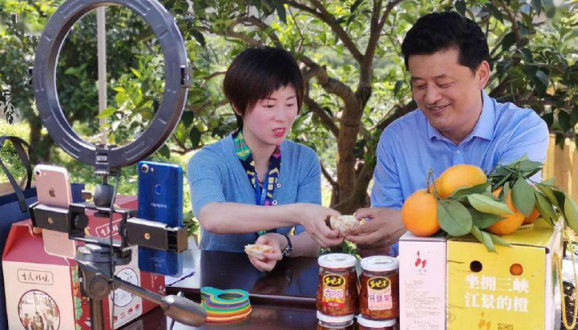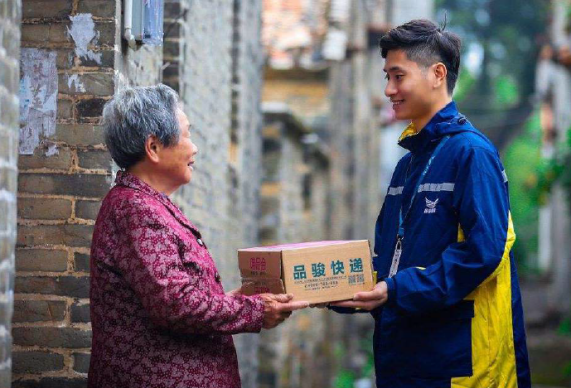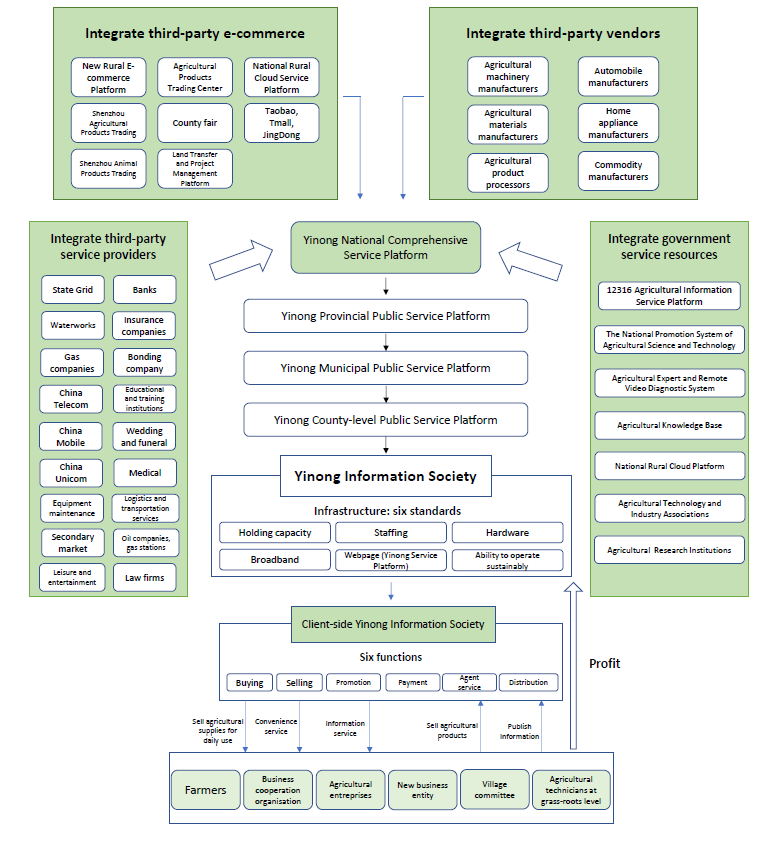Built upon the foundation of strong policy support from the Chinese government, good practices of e-commerce in rural China are contributing to the further development of this industry at the national, institutional and community levels. There are millions of stories of successful e-commerce, which are increasing alongside the rapid development and application of information and communication technology (ICT) and rural informatization technologies. It is undoubtedly so that policies and strategies are applied through practices, whereas practices always provide valuable experience and lessons for policy and strategy reformulation. Different practices demonstrate and facilitate various approaches of rural e-commerce development.

Studying several typical cases from different perspectives could thus be of help in understanding and learning from them better.
At the national level, the Chinese government is dedicating to building ICT infrastructure and informatization systems nationwide, which has provided the strong and necessary foundation for e-commerce development, especially in rural areas.
Internet access is the first step for smallholder farmers engaging in this modernized progress, and although it is not necessarily available in every developing country, he phenomenon of e-commerce prosperity in rural China has illustrated the value of the Chinese government's efforts on providing this. Among these outstanding performances, 12316 Service is the biggest government-led informatization service project in China, which is supported by the Ministry of Agriculture and Rural Affairs and contains several sub-projects including the "Information into the Village" project. Based on this increasingly mature information service system is the "Yinong Information Society", the service entity in villages which was established and promoted as the implementer of 12316 Service sub-projects. It offers public services for good e-commerce hatchery and training services for smallholder famers, supporting them in making use of the internet, learning related knowledge and skills, operating e-commerce business, and other relevant areas. The Chinese government also implemented several extensive national engineering projects supporting rural transformation in China in several provinces or villages. Specially, Internet of Things (IoT) technology has been applied in different fields of agriculture through costeffective IoT software and hardware products and technology models, which are already making a great contribution to rural development.

At the institutional level, the Taobao Village has become the most popular and special pattern of rural e-commerce in China. Taobao Villages have witnessed the development of e-commerce entrepreneurship in rural China over several years, and millions of smallholder farmers have achieved increased income, business ownership, and better living as members of Taobao Villages. The Taobao Village model has demonstrated good contributions to poverty alleviation and rural transformation through the application of digital technology, and successful stories in different villages illustrate various smart approaches based on local resources and features. For the development of Taobao Villages, grassroots entrepreneurs are the facilitators playing the most significant role during the whole process, which could be regarded as the key factor of e-commerce development at the community level.
E-commerce business in rural areas brings new jobs for farmers, new transformative approaches for villages, and new development opportunities for agriculture. Rural entrepreneurship facilitates different models with successful stories: some farmers participate in online training for technical knowledge and skills and become the leader of creative village businesses, some become popular stars on new media platforms selling agricultural products and introducing their hometowns with thousands of followers, and some farmer cooperatives expand their markets and strengthen the relationship with their customers through online business, all of whom actually contribute to poverty reduction and rural development. During the COVID-19 pandemic, when e-commerce business might be the only cost-effective approach to supporting family livelihood in villages against the background of the lockdown situation, more farmers have chosen to join the e-commerce entrepreneur group.
I. 12316 Service
The comprehensive foundation of China's agricultural and rural e-commerce was laid in 2006 with the landmark project of 12316 service. 12316, authorized by the Telecommunication Administration Department, is the special number of the national agricultural public welfare service provided by the Ministry of Agriculture and Rural Affairs and its system for agriculture, rural areas, and farmers. The initial form of 12316 service is "three in one", that is, telephone, computer, and television (radio) cooperating with each other to play a functional role in service delivery. Later, on this basis, it has developed into a comprehensive information service system for agriculture, rural areas, and farmers, and has become a well-known brand of agricultural and rural services.
II. "Information into the Village" Project
In April 2014, the Ministry of Agriculture's "Information into the Village" project officially launched a pilot demonstration. The "Information into Villages and Households" project is a new trend that conforms to the era of "Internet +" and the farmers' demand for information and the deep integration of information and agricultural modernization. Led by the agricultural and rural departments, It is a beneficial project which provides services to farmers using information technology.
This project relies on the 12316 information service system for agriculture, rural areas, and farmers, focuses on the construction of information service capacity at the village level, and aims at meeting the information needs of farmers' production and life.
"Yinong Information Society" is the implementer of the "Information into the Village" project. It offers public services for good e-commerce hatchery and training services.
The main goal of the "Yinong Information Society" is to improve four main capabilities for farmers: the capability to acquire information, the capability to increase income, the capability to participate in social affairs, and the capability to develop themselves.
The program was launched to provide farmers with services such as public welfareservices, convenience services, e-commerce and training experience. As of 2018, the "Yinong Information Society" was established in 204,000 villages.

III. The "Internet +" Project
At the end of 2019, with the consent of the State Council, the Ministry of Agriculture and Rural Affairs, the National Development and Reform Commission, the Ministry of Finance and the Ministry of Commerce issued the "Guidance on Implementing The "Internet +" Project to Bring Agricultural Products out of Villages and into Cities”. On 6 May 2020, the Ministry of Agriculture and Rural Affairs issued the "Internet +" Project
Pilot Work Plan for Agricultural Products from Villages to Cities, which plans to build 100 pilot counties for agricultural products from villages to cities. The objectives were to:
1.Promote smooth linkage between the production and sales of agricultural products;
2. Maintain good product quality at a moderate price;
3. Promote agricultural transformation and upgrading;
4. Improve agricultural quality and efficiency; and
5. Expand the channels for farmers to obtain employment and increase their incomes.
Related Links:
1. Practices of Agricultural and Rural Informatization in China
http://www.wfpchinacoe.net/2022-09/07/content_78402014.shtml
2. Stories of Rural E-commerce Fostering Grassroots Entrepreneurs
http://www.wfpchinacoe.net/2022-09/07/content_78402054.shtml
3. A New Online Business Model in Rural Areas –Taobao Village
http://www.wfpchinacoe.net/2022-09/07/content_78402133.shtml
Source:
Success Stories of E-commerce—Experience from China
http://www.wfpchinacoe.net/2021-04/01/content_78109422.shtml
For more information, please contact WFP China COE (wfpcn.coe@wfp.org)
Category
Government Support for Village Informatization
Contributor
Government Support for Village Informatization
Country
Case Study

